How the Grand but Abandoned Kempinski Hotel in Almaty is Connected to the Orphanage in Baganashyl
 Photo: Orda.kz
Photo: Orda.kz
A luxurious yet unfinished building stands in Almaty’s Medeu district. You could call it an old hotel that has never hosted a single guest. We found a reason to list those who built it, to take a fresh look at it, and to tell the whole story. For example, how Kempinski Almaty is connected to the orphanage in Baganashyl, and the tale of the unfulfilled five-star dream — as uncovered by Orda.kz.
Metaphorical Exercise: Kempinski
The Esentai River led our journalist to the entrance of the building, carrying a restless feeling. It’s not yet completely abandoned, yet not alive with bustling guests either. It’s in a kind of coma.





The unfinished five-star hotel was designed with every possible luxury for guests who never came — 182 rooms in total. There’s a revolving restaurant perched high above the city, offering a breathtaking view.
At that particular moment, the warm evening sun softened the otherwise cold tones of the architecture. Otherwise, the resemblance to North Korea’s “Ryugyong” hotel would have been even harder to ignore.
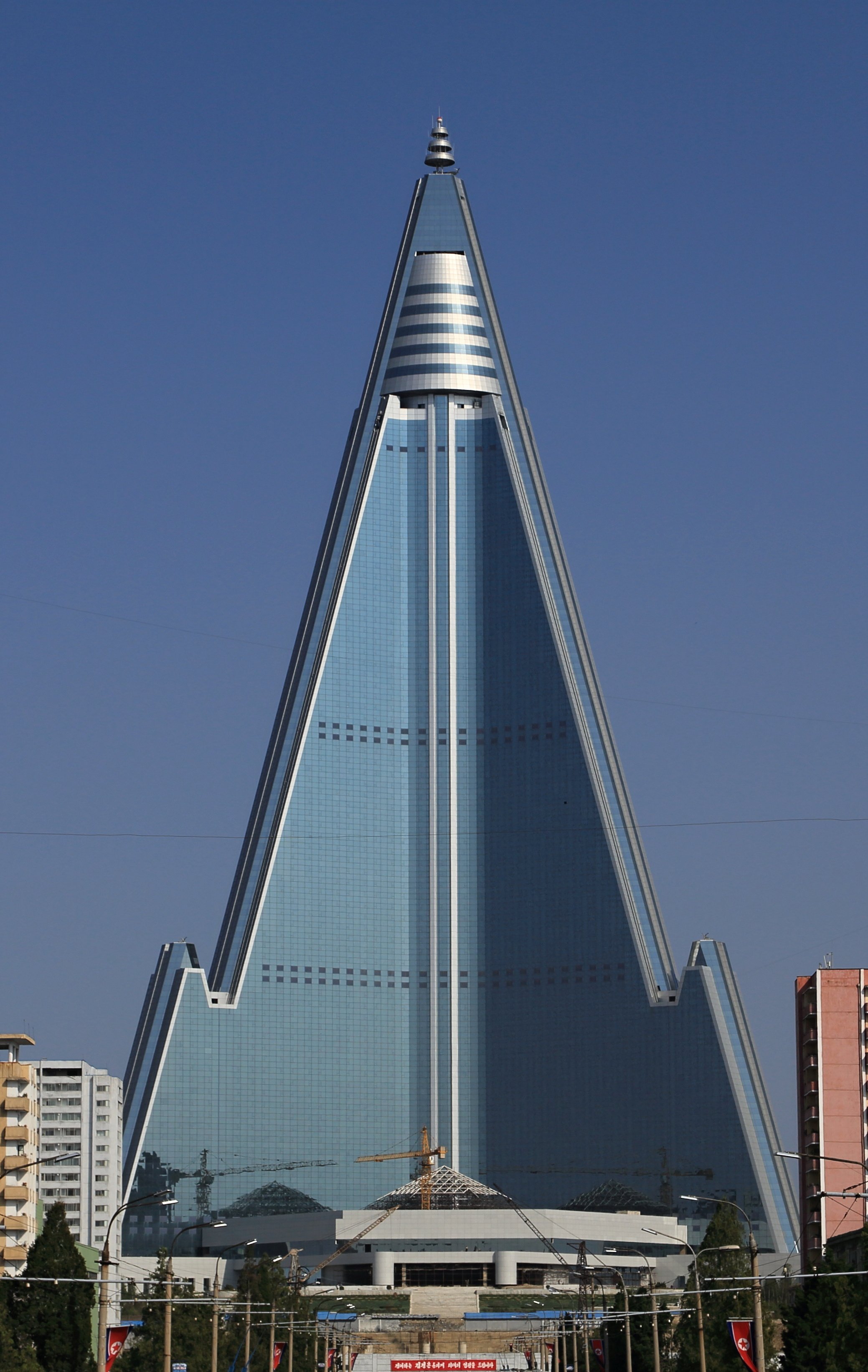
The Ryugyong is a pyramid-shaped giant looming over Pyongyang — lifeless, never opened. It has more than 100 floors, and surprisingly, the communist architects had planned several revolving restaurants inside. Who actually experienced dining while rotating high above the city remains unknown.
There’s yet another connection between these untouched hotels in Almaty and Pyongyang: both are linked to Kempinski.



Kempinski is a German international hotel chain founded back in 1897. Each year, the company opens a new hotel. In 2006, it was announced that an extraordinary property would be built in Almaty, with an opening planned for 2008.
Later, in 2012, Kempinski decided to manage a hotel in North Korea. That glass, steel, and concrete pyramid could have become part of the chain’s global portfolio — but it never happened.
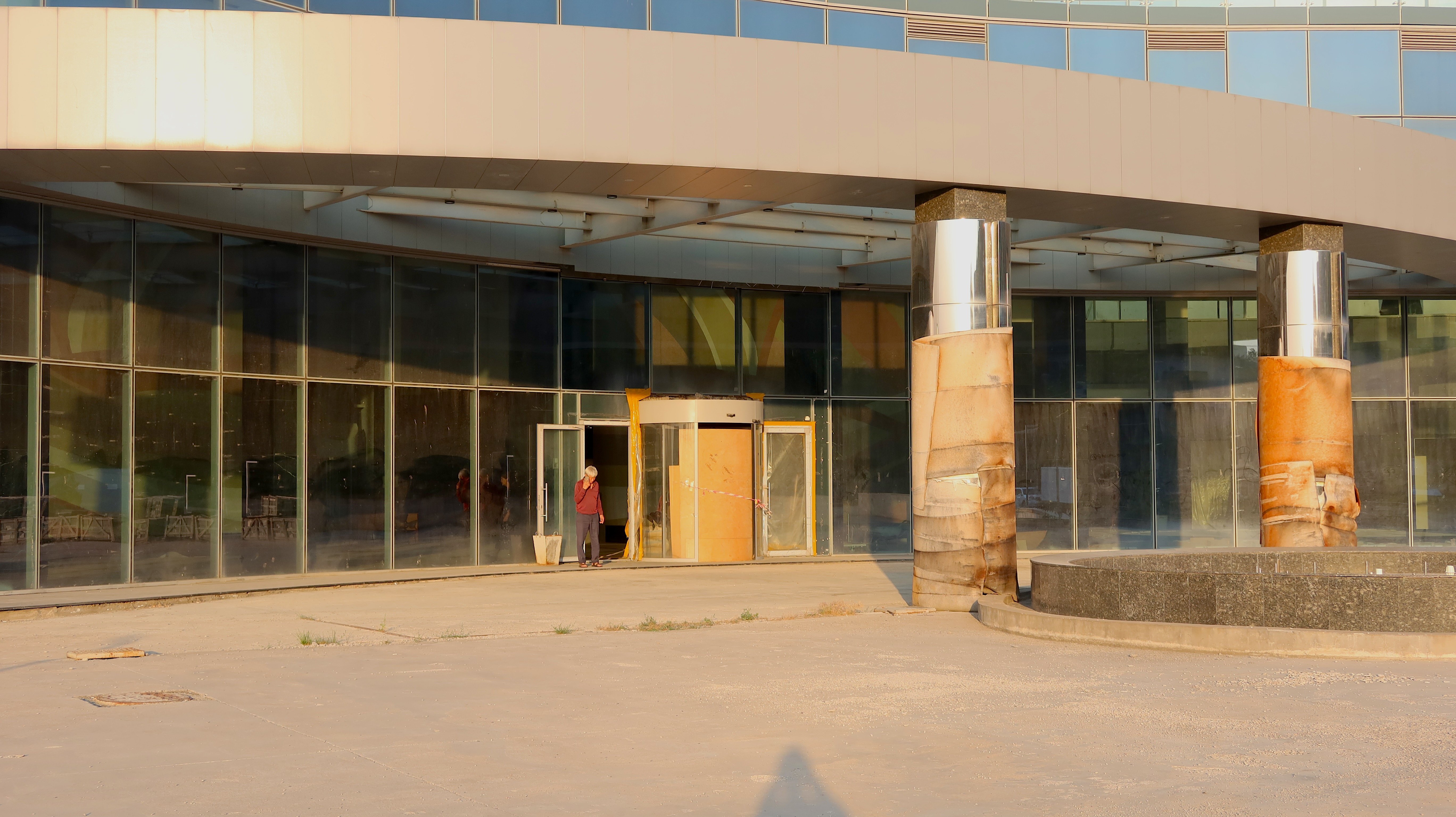
When we approached the entrance in Almaty, a security guard appeared. We asked when the hotel would open. He said there was no information.
Parts of the ambitious project have already been damaged by vandals — several windows at the rear have been smashed. Construction materials have been left scattered carelessly around the premises.




Why Wasn’t the Hotel Opened?
Despite the picturesque setting — towering mountains, fresh air, upscale homes — the location of the Kempinski is not considered entirely ideal.
One version claims that the hotel was built within a water protection zone, which would make it impossible to put into operation.







According to Almaty’s geoinformation map, the hotel does indeed sit in or near a water protection zone.
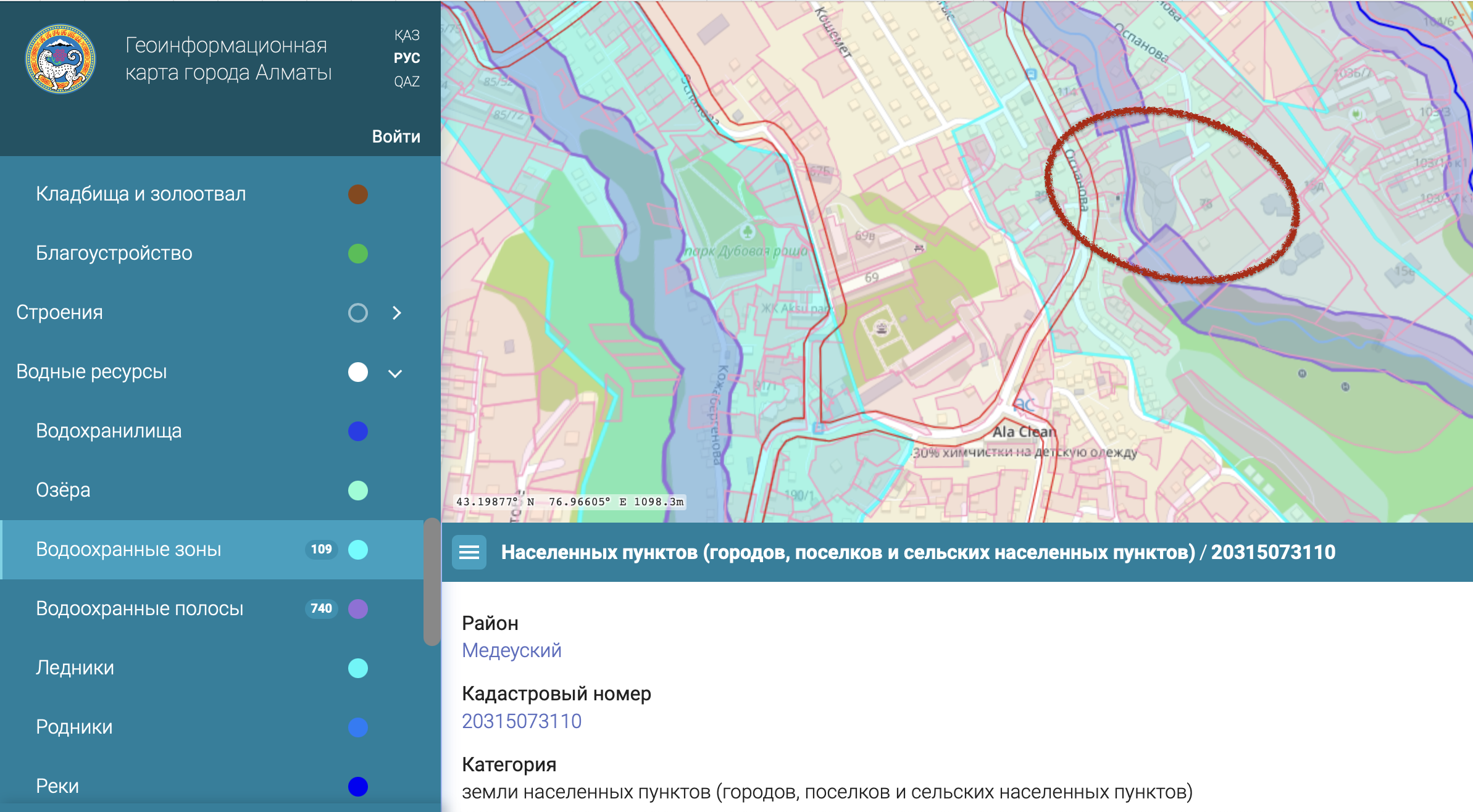
But if construction is truly prohibited, then the area is already full of violators.
To understand more clearly, we sent an inquiry to the Almaty Urban Development Control Department. Their response indicated that this was not the issue.
The customer, ‘Kazakh-German Joint Venture ASIA GROUP' LLP, received an architectural planning assignment No. 950 dated 15.11.2012, approved the draft design dated 22.04.2013 in the State Institution ‘Department of Architecture and Urban Development of the City of Almaty,’ and received a favorable conclusion from the state examination No. 02-0495/13 dated 25.07.2013. After that, the department received a notification of the start of construction No. 618/ЗТ-7384 dated 07.08.2013. Construction and installation works began on 07.08.2013, with Meken LLP (a company affiliated with ASIA GROUP — Ed.) as the contractor. There is no information about any foreign contractors or consultants in the construction start notification, and ASIA GROUP acted as the technical supervisor.
Neither the urban planning department, the construction department, nor the Almaty Akimat reported any problems with obtaining permits or any violations during construction.





Another possible reason exists, albeit hypothetical. The area where this expensive building stands — waiting for equally wealthy guests — is striking in its contrasts.
On one side, there are private luxury cottages hidden behind high fences. On the other hand, there are shabby houses, also fenced in, but with much lower barriers.
They look like huts and are likely part of the city’s dilapidated housing stock. The road here is narrow and in need of widening. Overall, the area is only halfway to being “five-star.”
Perhaps in the future, these issues could have been resolved, but… the third reason is financial difficulties.
No Money?
It has long been said that the company faces serious financial problems. We asked Kazakh Tourism how work with investors was progressing. In 2021, the hotel appeared on the company’s list of investment projects, but later it vanished from that list. We were unable to obtain further details.
Here’s the most intriguing part: the hotel was built and is currently owned by “Kazakh-German Joint Venture ASIA GROUP” LLP, registered in 1996. Today, it is owned by the family of Shalbay Kulmakhanov — former Akim of Almaty and the Almaty region, and once Kazakhstan’s Minister of Emergency Situations.
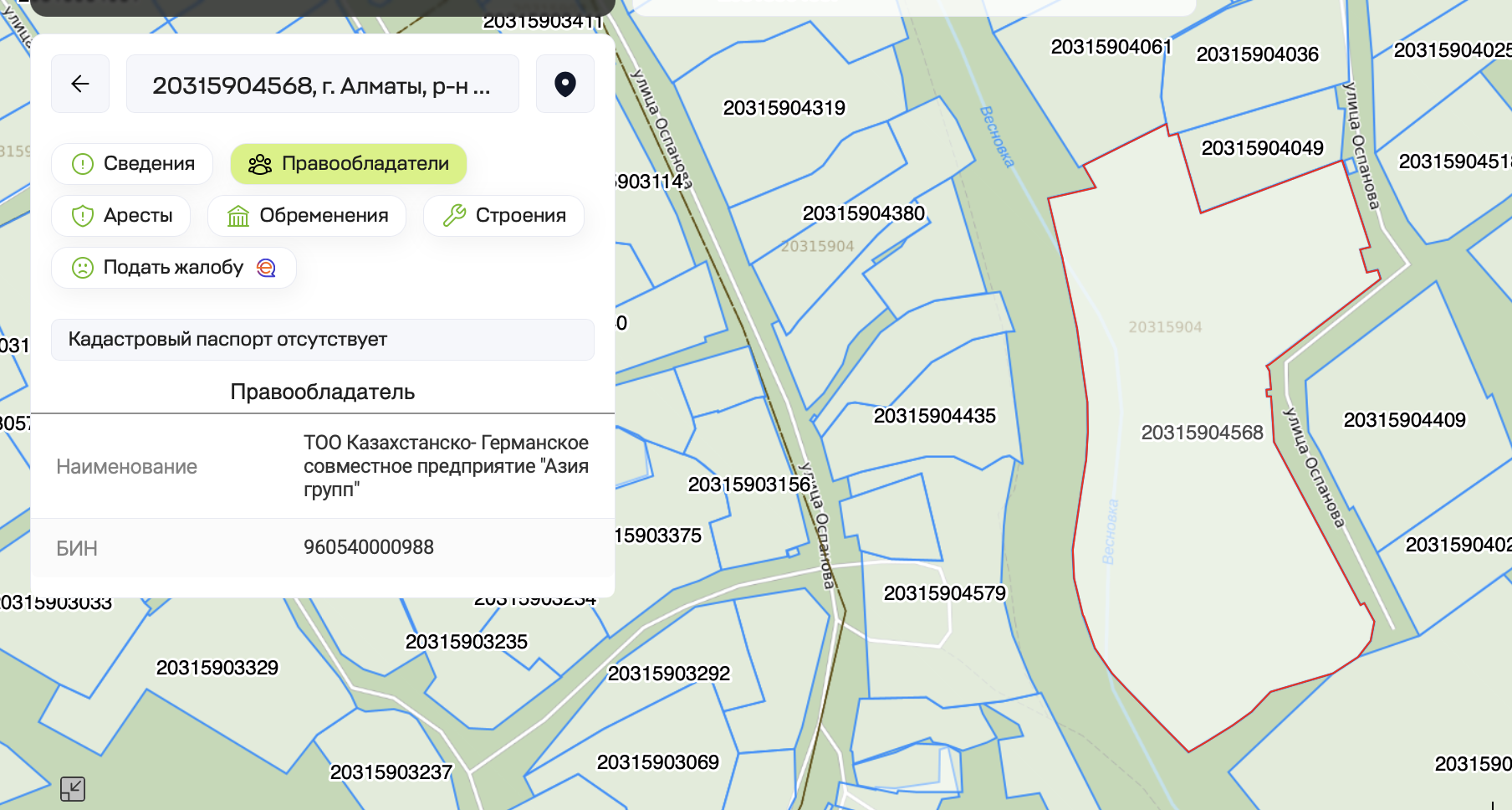
Currently, Kulmakhanov’s personal network of connections appears limited. But looking at the property holdings of his family members paints a different picture.
The Kulmakhanovs officially became the founders of “Kazakh-German Joint Venture ASIA GROUP” only in 2015. Since its creation, the company has been owned by Raikhan Uvaisova and Meken-Service LLP. That Uvaisova is connected in some way to the former Akim’s family is suggested by a 2023 appellate court ruling.
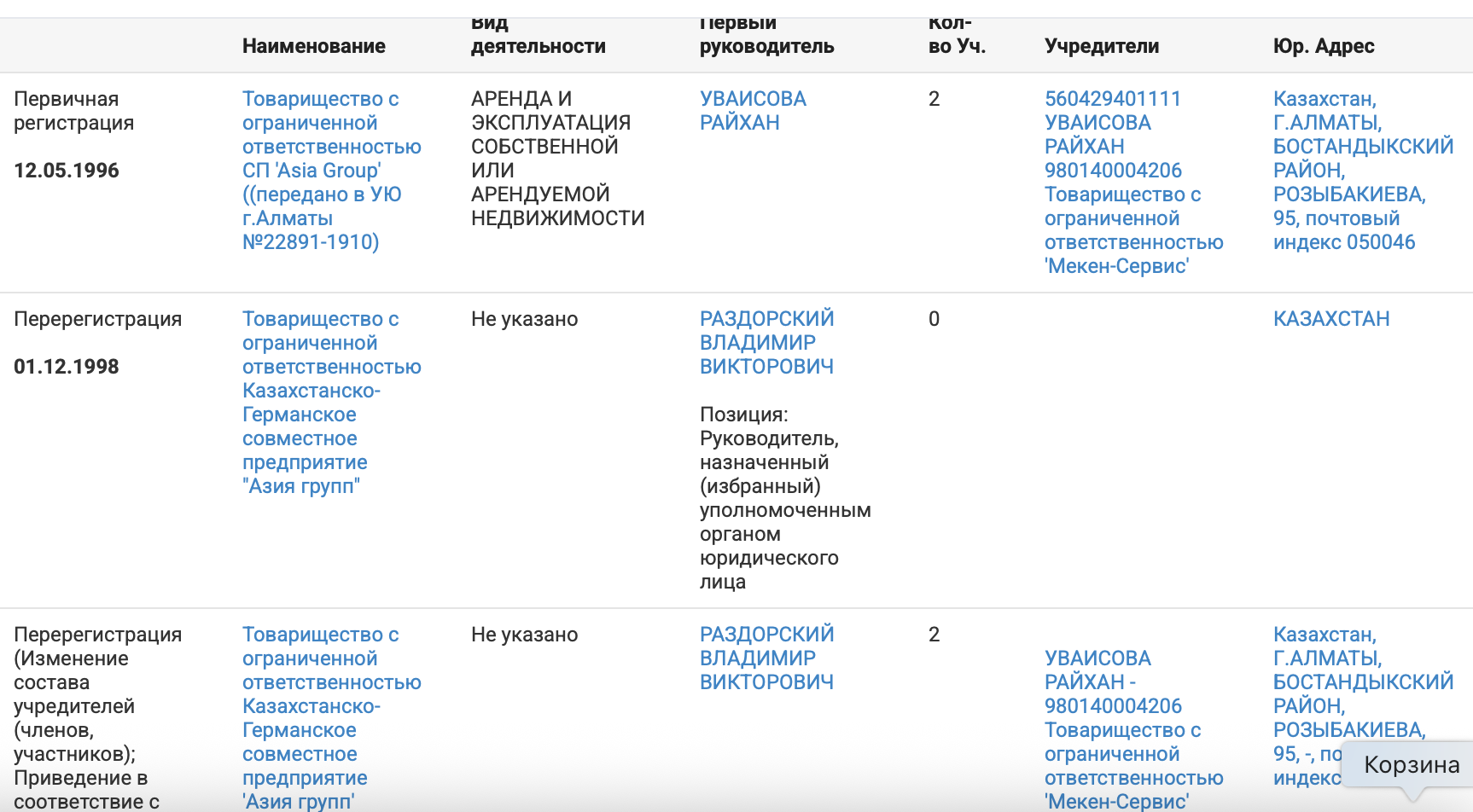
According to the case materials, in October 2018, Uvaisova entered into a transaction with Sholpan Kulmakhanova (the Akim’s wife) shortly before Air Astana JSC began collecting a debt from her. Sholpan Kulmakhanova executed a deed of gift, transferring 100% of the share in the authorized capital of Akshagala LLP — worth 109,200 tenge (!) — to Uvaisova.
The transaction was notarized.
Although Kulmakhanova was later held jointly liable in Air Astana’s claim for over 1.4 billion tenge, the court found no evidence that the donation was made to avoid obligations. According to the ruling, Uvaisova did not know — and could not have known — about any potential debts, and the share transferred was not under seizure at the time. The court therefore upheld the deal.
We discovered that Uvaisova was one of the founders of the company now owned by Kulmakhanova’s husband and daughter.
Meken-Service LLP, in turn, also has members of the former Akim’s family among its founders. They officially joined the company in 2010 through the Kazakhstan-German enterprise INTERFOOD LLP — another “Kazakh-German” link.
Before that, the founders were Gaziz Temirov and Zholdasbay Amanzholov. Temirov heads KENSHILIK SERVICE LLP, which, after several intermediary steps, founded Asia Stroyexpress LLP. That company then provided a link to WHITE TOWER INTERNATIONAL LLP — also owned by the Kulmakhanov family.
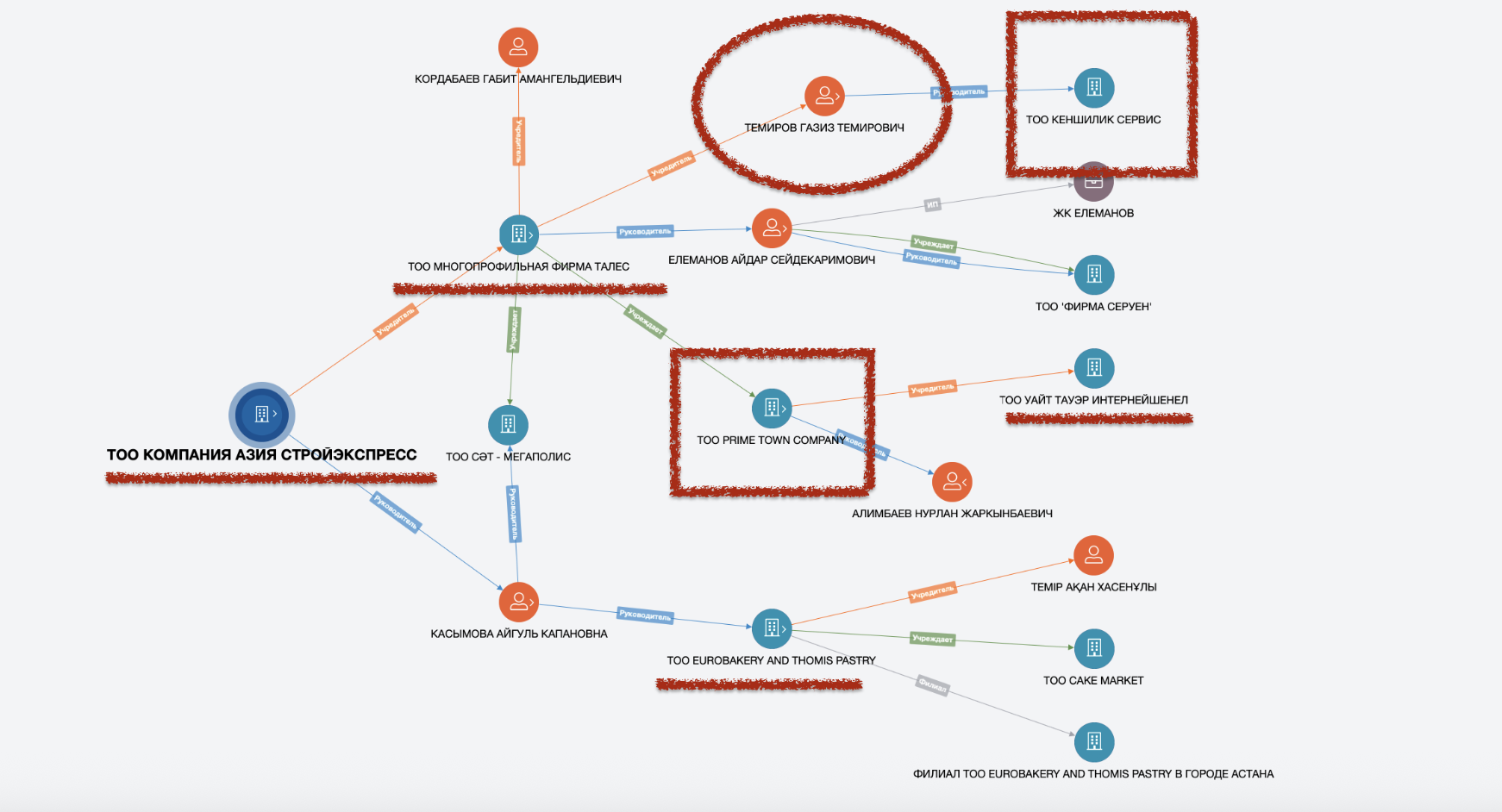
Zholdasbay Amanzholov was once tied to the scandal involving Tengri Bank, whose employees were suspected of abuse of office. He was on the list of defendants.
In 2023, Amanzholov was found guilty of committing a crime under Article 28, Part 5, and Article 189, Part 4, Clause 2 of the Criminal Code. However, he had died in September 2021. The bank’s liquidation commission sought damages totaling 23 billion tenge from 14 defendants. The court awarded a smaller amount.
Today, the founders of Meken-Service LLP are Sarsemberli Amanzholov and Shalbay Kulmakhanov.
Construction of the Kempinski
Information about the hotel’s construction first appeared in 2006, at which time there were only press releases about hundreds of millions of dollars in planned investment and promises of upcoming luxury.

By 2002, the empty plot where Kempinski now stands was already starting to resemble a construction site.
This land has no connection whatsoever to the property the orphanage in Baganashyl lost many years ago — more on that later.
The facility was expected to be completed in 2008.
But the development schedule was clearly delayed. The most active construction period took place in the second half of the 2010s.
Construction stalled when the project was about 85% complete, though later officials claimed it had reached 88%. Either way, progress stopped. According to Kazakh Tourism, the Kazakh-German Joint Venture ASIA GROUP is now actively negotiating with investors.
The company owns not only the land directly beneath the hotel, but also several neighboring plots.

At one point, plans called for the hotel to open in 2016 — but that never happened. More than a million dollars would be required just to bring it into operation.
Meanwhile, ASIA GROUP is drowning in debt. Billions of tenge are being sought from the company in court, and businesses linked to ASIA GROUP are also listed as defendants.





In December 2023, the Civil Division of the Almaty City Court overturned a lower court’s ruling and ordered eight defendants to jointly repay 24.2 billion tenge to Specialized Financial Company W INVEST LLP.
W INVEST LLP had acquired the right to collect the debt through a chain of assignments, beginning with the bank that originally issued the loan. That right passed from the bank to Workout Collection Agency LLP, which then transferred it to W INVEST LLP. The debt stemmed from a failure to meet obligations under a credit line dated May 6, 2014.
The defendants included:
- Kazakh-German Joint Venture ASIA GROUP LLP
- Shalbay Kulmakhanov
- Lyazzat Shalbayevna Kulmakhanova
- Meken LLP
- Meken-Service LLP
- Mountain Mineral LLP
- Mramor Tas LLP
- White Tower International LLP
The court ordered foreclosure on the mortgaged assets, including the unfinished hotel, and allowed the property to be sold at auction rather than transferred directly to the plaintiff. The hotel’s starting auction price — excluding the land — was set at 22.3 billion tenge, while the 1.0724-hectare plot beneath it was valued at 1.1 billion tenge.
On April 8, 2024, ASIA GROUP filed a lawsuit challenging W INVEST LLP’s right to claim the debt. The court rejected it. In June 2024, the company appealed, but the court again ruled against them.
ASIA GROUP can still take the case to the Supreme Court. For now, while legal proceedings continue, the property remains under its ownership and cannot be sold.
The Orphanage in Baganashyl?
The link dates back to 2007, when ASIA GROUP became involved in a scandal connected to one of today’s most discussed topics — the orphanage in Baganashyl.
Over time, details emerged about the orphanage’s situation. It turned out that the institution had already lost part of its property. Since 1993, the orphanage had held nine hectares of land in the Qarasay district of Almaty region for subsidiary farming.
In 2002, by order of the then-Akim of Qarasay district, Bolatbi Kutpanov, three hectares were taken from the orphanage “for state needs,” and another three were moved into the district’s land reserve.
But a few years later, it became clear that “state needs” meant private business interests. The seized land had been sold to three private individuals and to the Kazakh-German Joint Venture ASIA GROUP LLP. The identities of the three private buyers remain unknown.
By a striking coincidence, at the time (May 2001 – August 2005), the Akim of Almaty region was Shalbay Kulmakhanov — the very man who, along with his daughter, now owns ASIA GROUP.
As established earlier, ASIA GROUP is closely tied to Asia Stroyexpress. In practice, this means that in 2006, six hectares of the orphanage’s land ended up in the hands of a company affiliated with the former Akim of Almaty region.
As it turned out, back in 2004, the same Akim of Qarasay District issued a decision confiscating the remaining six hectares of the orphanage’s land. The orphanage never received this document. The Akim’s order stated that the land was to be placed in the “land reserve of the district” and was signed in early October 2004. Remarkably, just days later — on October 12 — these six hectares were sold to Company Asia Stroyexpress LLP. Even more curious, this partnership had been created only on October 1, 2004. The decision also claimed that the orphanage had voluntarily given up the land. “But we did not, and could not, have done that. First, a state institution cannot refuse state property. Second, we have a founder — the Akimat of Almaty Region. And we are subordinate to a government body — the Department of Education of Almaty Region. Without their approval, we cannot make such decisions, the institution’s employees said at the time (based on archival materials from 2007 — Ed.)
The orphanage had been leasing part of the buildings on its subsidiary farm — the very land that was later taken away — to Perspektiva CONST LLP. The regional authorities were aware of this, and according to the orphanage’s representatives, everything was done legally.
When the tenants were ordered to vacate, they protested and took the matter to court. Perspektiva sought to have the transaction between the Qarasay District Akimat and Asia Stroyexpress — under which the plot had been sold — declared invalid. The court ruled in their favor.
Asia Stroyexpress appealed and, at the same time, filed its own lawsuit demanding that the lease agreement between the orphanage and Perspektiva be declared invalid. In this case, the court sided with Asia Stroyexpress.
The Akim of Qarasay District during this period was Bolatbi Kutpanov. On October 29, 2007, then–Prime Minister Karim Massimov (later head of the National Security Committee, now serving a prison sentence) ordered Kutpanov’s resignation for his involvement in the illegal allocation of land. On November 8, 2007, Kutpanov was dismissed. An investigation was launched against him, but he died before it was concluded.
The orphanage never recovered the land. Despite repeated attempts, we have never been able to determine its current whereabouts.
More recently, the editorial team learned that the site for the new orphanage had originally been part of land allocated for a zoo. Through opaque schemes, it was transferred to private owners and a religious organization, but later returned to state ownership and repurposed for a social facility.
This was the only parcel whose transfer back to the state was not challenged in court. However, on July 31, an appeal overturned the initial court decision.
Original Author: Alexandra Mokhireva
Latest news
- Citizen of Kazakhstan Fined in Russia After Forcing Anti-War Message on St. Petersburg Radio
- Criminal Case Opened Against KazTAG Leadership
- East Kazakhstan Transport Department Head Resigns Amid Corruption Probe After Bridge Collapse
- Toqayev Meets EEC Chair Sagintayev Ahead of Upcoming Eurasian Summit
- Apple and Google Warn of State-Backed Cyberattacks Targeting Users in 150+ Countries
- Kazakhstan: FMA Uncovers Illegal Online Casino Scheme
- Kazakhstan Exporters Sound Alarm as KTZ Imposes Over 20 Rail Transport Bans
- Lawyer: House Arrest Prevents Orda.kz Head Bazhkenova from Defending Herself in Court
- KTZ, Uzbekistan Railways Expand Grain Transit Amid Border Congestion
- Shymkent Military Court Sentences Fuel Depot Chief to Nine Years in Prison
- Let’s Install a Thousand Towers! How Environmentalists Propose to Clean Almaty’s Air
- Armenia Releases Former “Golos” Coordinator Wanted Under Russia’s Foreign-Agent Law
- Kadyrov Calls Russian Strikes “Response” to Grozny City Complex; MoD Makes No Direct Mention
- Kazakhstan Seeks Solutions to Ease Pressure on Uzbek Terminals Amid Export Surge
- Georgia’s Security Service Says No Evidence of “Kamit” After BBC Report
- Kadyrov Confirms Drone Damage to Grozny City
- Russia Temporarily Blocks Kazakhstan's Grain Transit, Threatening Flax Exports to Europe
- Assets of Businessman Dulat Kozhamzharov Seized Following Halyk Bank Claim
- Georgian Opposition Calls December 6 March Over Alleged Use of Chemicals at 2024 Protests
- Severe Smog Covers Oskemen

